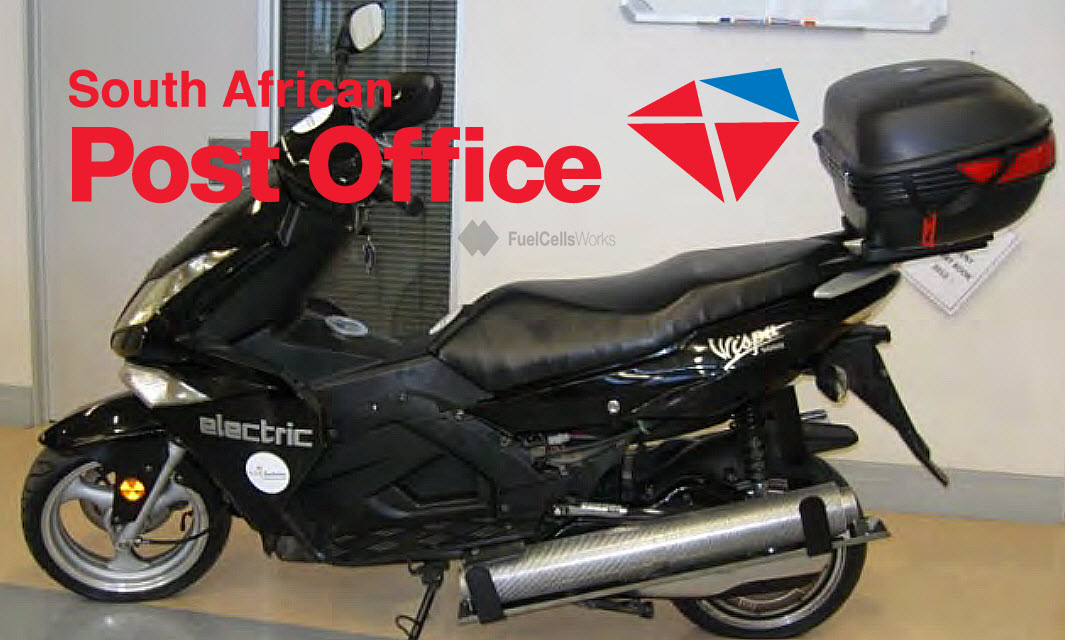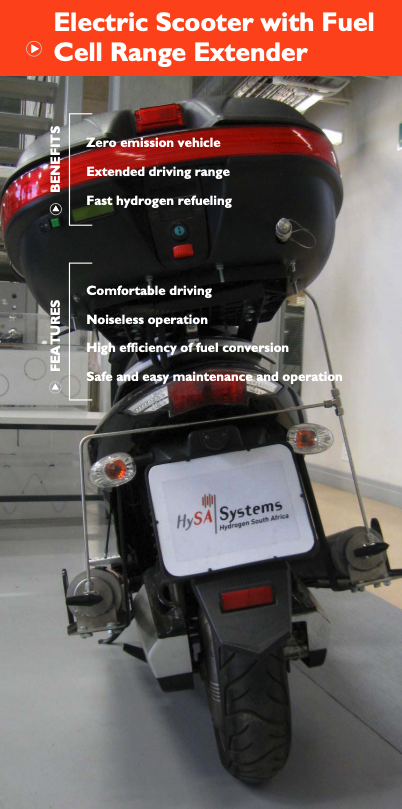
The South African Department of Transport recently published its “Green Transport Strategy for South Africa 2018-2030” in which the government of “South Africa is committed to providing a world class transport system that reduces both the cost of transport and the quantity of Greenhouse Gases (GHG), as well as other pollutants that are emitted by the sector.”
 The Government of South Africa’s plan main goal is to reduce the environmental impact that gas and diesel pose. Part of this plan is its use of battery electric scooters to deliver the mail.
The Government of South Africa’s plan main goal is to reduce the environmental impact that gas and diesel pose. Part of this plan is its use of battery electric scooters to deliver the mail.
However, as report said “Battery electric scooters tend to encounter challenges associated with range limitations, particularly in areas where the terrain is bad. In such instances, hydrogen fuel cells could be used to extend the range of these scooters and increase productivity.”
“A hydrogen project of this nature is currently underway through a collaboration between HySA and the South African Post Office (SAPO), with funding from the DST.”
“At least three battery electric scooters will have their range extended using hydrogen fuel cells with the on-board hydrogen stored in containers using metal hydride hydrogen storage material developed through the HySA Programme. The first such scooter has been completed and is currently undergoing performance testing and validation.”
The hydrogen fuel cell scooters only emission will be water vapor. For the moment, the only real life drawback will be that the lack of a hydrogen production and hydrogen filling stations which means that trial may prove to be quite expensive and pose logistic issues.
Read the most up to date Fuel Cell and Hydrogen Industry news at FuelCellsWorks




